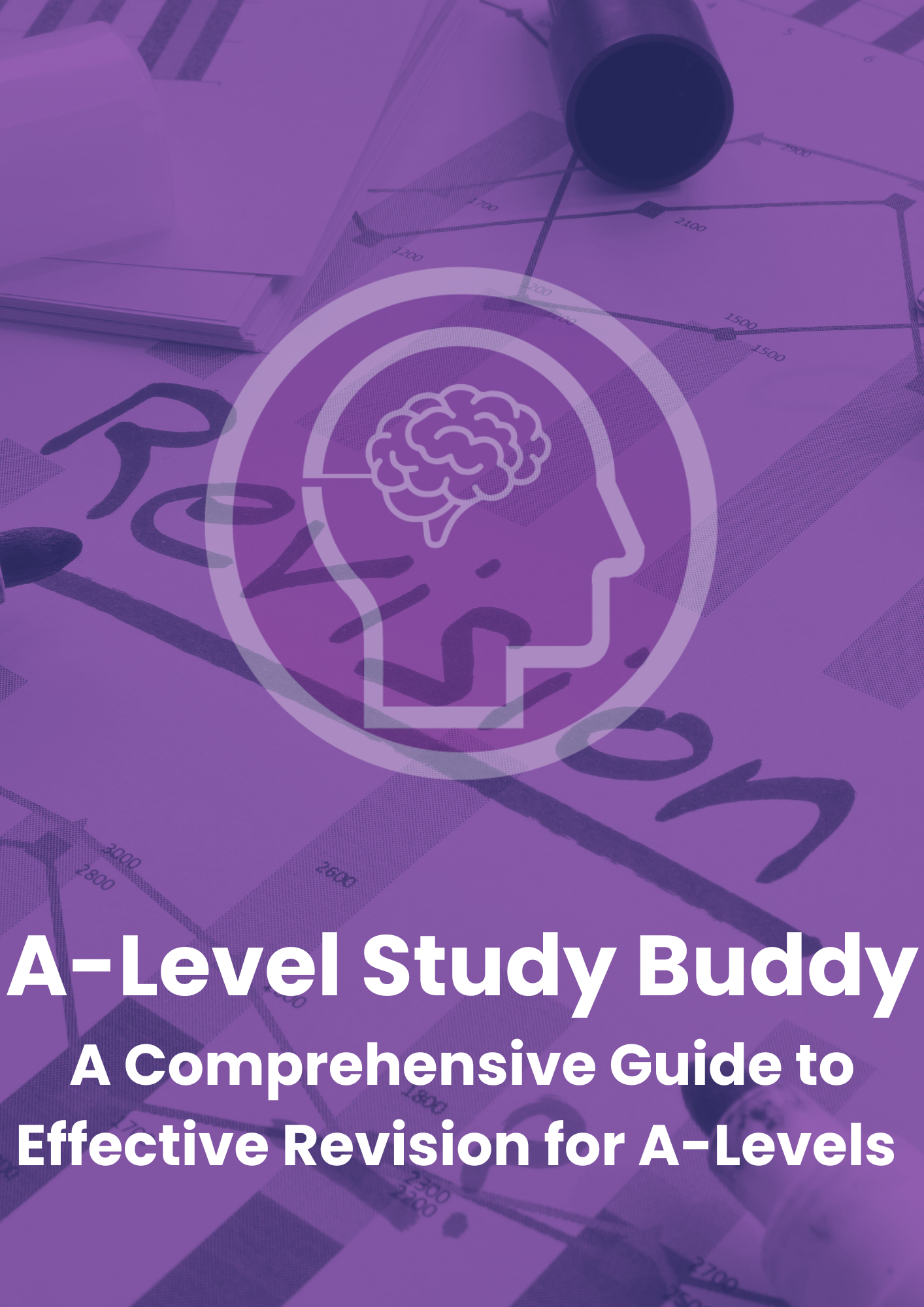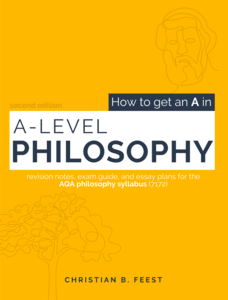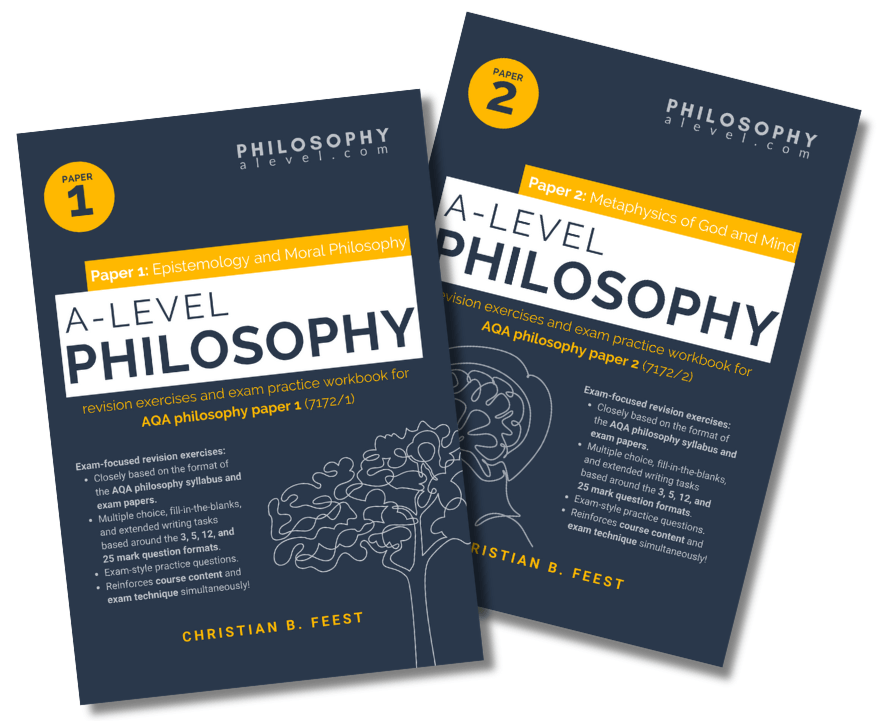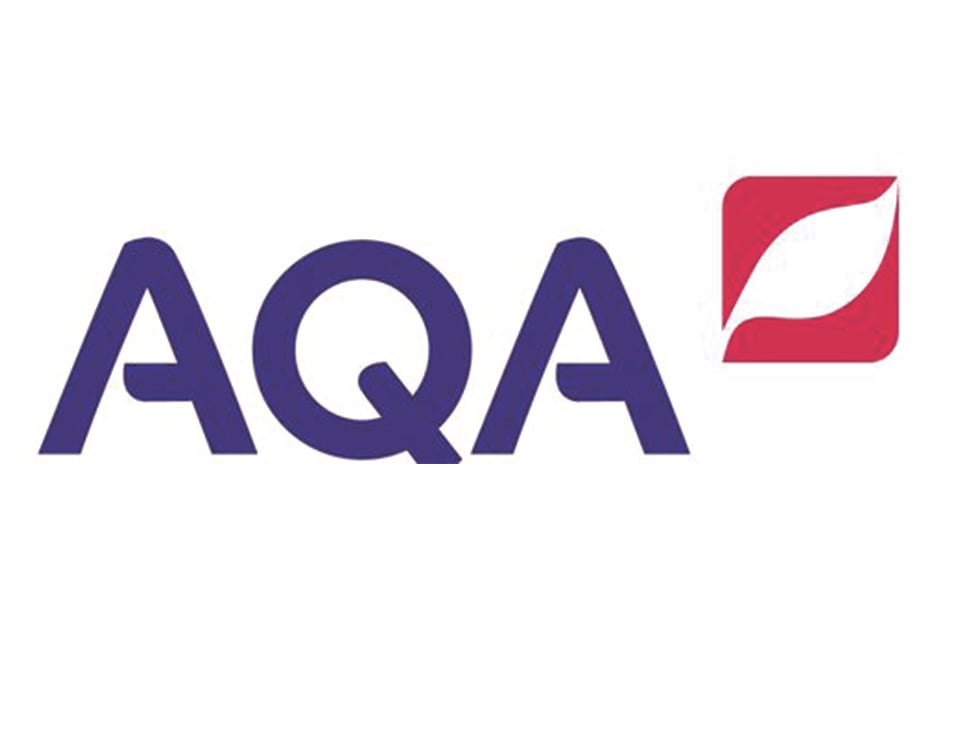Places on our 2024 summer school are filling fast. Don’t miss out. Enrol now to avoid disappointment
- How to Write a Great Essay for Different A-Level Subjects

In previous articles, we’ve given you lots of advice on how to write the perfect essay.

You should also read…
- 6 Practical Tips for Writing Better Essays
- How to Do Research for an Excellent Essay
However, the skills we’ve discussed up to now have been generic, and have not taken into account the fact that different subjects require different skills when it comes to writing excellent essays for them. In this article, we look at the particular skills needed to write great essays for individual A-level subjects, so that you can familiarise yourself with what you need to do to excel in whatever A-levels you happen to be studying.

Good English literature essays revolve around intelligent interpretation. The problem many students have with this is organising their interpretations into a tightly structured essay that flows well; many simply let their ideas run wild and flit aimlessly between one point and the next. To combat this problem, you need to consider the writer’s overall aims and then show how they have conveyed those aims, paragraph by paragraph, with each paragraph devoted to a particular technique or focus. A good structure to use is as follows:
- Point – make a statement, such as “Brontë uses the bleakness of the moorland setting to reflect Heathcliff’s temperament.”
- Explanation – elaborate on the statement in more detail. In this example, your explanation would involve explaining the parallels between Heathcliff and the moors – their unpredictability and wildness, for instance, and the violence of the weather mirroring Heathcliff’s violent personality.
- Evidence – now provide quotes from the text to back up what you mean. In the Heathcliff example, you could quote specific words and phrases that show similarities in the way Heathcliff is described and the way in which the moorland landscape and weather are described.
- Reiterate – close off the paragraph by reiterating the point, and perhaps developing it a little further or introducing the idea you’re going to carry into the next paragraph. For example, “This ties in with a wider theme running through the book as a whole, which is that nature parallels human emotions.”
Good English essays pay close attention to detail, noting specific words, phrases and literary devices a writer has used, and to what effect. They quote liberally from the text in order to support each point, deconstructing the writing and analysing the use of language; they look at different interpretations, seeing beyond the surface and picking up on possible deeper meanings and connotations. But they also consider the meaning of the piece as a whole, and the overall effect created by the specific details noted. All this should be considered within the framework of the genre and context of the piece of writing. For instance, a poem by William Wordsworth would be considered within the context of the Romantic poets, and might be compared with work by contemporary poets such as Shelley or Keats; the historical background might also be touched upon where relevant (such as the Industrial Revolution when discussing the poetry of William Blake).

Though it’s also a humanities subject, History requires its own very particular set of skills that differ to an appreciable degree from those expected of you in English. A history essay is unequivocal about its writer’s opinion, but this opinion must be based on a solid analysis of evidence that very often can’t be taken as fact. Evidence must be discussed in terms of its reliability, or lack thereof. The good historian considers what biases may be inherent in a source, what vested interest the source might have, and what viewpoint that source was written from. For instance, you might analyse a source by discussing whether or not the person was present at the events they are describing; how long after the events they were writing (and therefore whether they are remembering it accurately if they were there, or whether they are getting their information second or third hand from someone else; and if so, how reliable the original source is); whether they are trying to show evidence to support a particular political view; and so on. So, each time you make a point, back it up with evidence, and consider the strengths and weaknesses of that evidence. A good history essay makes connections between what’s been written about, considering how issues interrelate, so think about how what you’re writing about ties in with other things; what was the impact of the event you’re discussing, did it happen in isolation, and what were the events that led to it ?

It’s vital to look at both sides of the argument – or, where many possible viewpoints exist, to acknowledge these nuances. It’s fine to contradict yourself, provided you do so consciously; that is, you can build up an argument and then turn it on its head, observing that you are doing so (for example, “So far, so compelling; but what about the less well-known evidence from such and such?”). You can use quotes from historians you’ve read, but use these in the context of discussing scholarly opinion. Don’t quote a historian’s words as evidence of something, because this is only someone’s opinion – it’s not proof. Finally, where possible, use specialist terms to show that you know your stuff (“proletariat” instead of “workers”, for example).
The primary task that lies ahead of you in writing a French essay is, of course, to demonstrate your superior language skills. Keep the content itself very even-handed, sitting on the fence rather than presenting a forceful opinion that could distract attention away from the quality of your use of French. Focus on using as wide a variety of vocabulary and tenses as you can. It will help your essay if you can learn how to say more sophisticated phrases in French, of the sort you would use if you were writing an essay in English. This useful document from RealFrench.net, Writing Essays in French, will give you numerous useful French phrases to help you put together an impressive essay, including the vocabulary you need to present a balanced argument.

Geography is a subject that crosses the divide between the sciences and the humanities , considering both physical processes and human activities (and their effects on the world around us). Essays for Geography may differ depending on which of these focuses the essay is discussing, and the evidence you might include in your essay could vary from phenomena observed and data gathered in the natural world to the results of population censuses. To write a good Geography essay, you’ll need to include both theory and detailed, real-world case studies to support your answer. Mention specific places by name, and communicate the facts accurately. Your teacher will be assessing not just your knowledge, but your ability to support what you say with relevant information that proves it. You shouldn’t just rattle off everything you know about a particular case study; you should deploy relevant facts from the case study to support a specific point you’re trying to make. Keep linking each point back to the question, so that you’re always working towards answering it; this also helps you ensure that everything you include is actually relevant to the question. Showing that you’ve thought about an issue from multiple perspectives, and that you appreciate how they interrelate, is important in Geography. You can do this by organising the content of your essay into categories, considering different factors in turn, such as the scale of the issue, and the timeframe and environment involved. Discuss the various factors involved logically, one by one, such as the environmental impact of climate change or a natural disaster (such as a tsunami or volcanic eruption), followed by its physical, economic, social and political implications. Acknowledging the numerous nuances of the situation will demonstrate your appreciation of its complexity and show that you are thinking at a high level.
Classical Civilisations

As the study of the ancient world (primarily ancient Rome and Greece), Classical Civilisations combines archaeology and history, looking both at what survives materially (from small finds, to art and sculpture, to temples) and what survives in the way of texts by ancient authors. A good essay for this subject analyses, evaluates and interprets. The historical elements of the subject will require the same set of skills we discussed for History earlier, while the archaeological components of this subject require slightly different skills. With your archaeologist hat on, your job becomes similar to that of a detective, piecing together clues. Archaeology crosses over into science, and with that comes scientific considerations such as how archaeological evidence has been gathered – the methods used, their reliability, whether or not they could have been tampered with, how accurately they were recorded, and so on. You’ll look at a variety of different types of evidence, too, from the finds themselves to maps of the local topography. As with Geography, for which you’re required to learn lots of detailed case studies and names, you’ll need to learn plenty of examples of sites and finds to use as sources of evidence in building up a picture of the ancient world. And, as with any subject, looking at both sides of any argument is crucial to good grades. If the evidence you’re discussing could show one thing, but it could also show another, don’t just present one possibility – show that you’ve thought in depth about it and consider all the possible interpretations.
Science subjects

The sciences – Biology, Chemistry, Physics and Mathematics – are generally less essay-focused, so we’re grouping them together here because the essay skills required for each of these subjects are very similar. While the fundamentals of scientific essay writing are the same as any other subject – having a logical structure, well-developed argument, and so on – there are a few subject-specific considerations to bear in mind, and some common pitfalls to watch out for. The first is that there is no room for opinion in a scientific essay; unless you’re specifically asked for it, leave your own thoughts out of it and focus instead on a completely objective discussion of the evidence gathered through scientific research, which will most probably be quantitative data. Avoid vague language such as “it is thought that…”; be as precise as possible. Start with a hypothesis, and then discuss the research that supports or disproves it. Back up every statement you make with solid data; it’s not enough simply to drop in the name of the research, so briefly describe what the findings were and why they prove the statement you’ve just made. Another mistake many students make is to confuse cause and effect; this arises because of the tendency to assume that correlation implies causation, which is a common logical fallacy. Just because two things appear to be related, it doesn’t mean that one caused the other, and committing this error in an essay is a major faux pas that will lose you marks. It’s also a good idea to ensure that you’ve included every piece of research that could be relevant; if you don’t, you could be leaving out a crucial piece of evidence. Finally, mention any limitations there may have been with the methodology used to gather the data you discuss.

Psychology essays are best approached with a scientific mindset, but it’s far more difficult to prove anything in this subject – and this should be acknowledged in your essay. The task becomes one of assessing which theory is the more probable one, based on an analysis of the data from various studies. Make liberal reference to named and dated psychological experiments and research, but acknowledge the fact that there may be more than one theory that could account for the same set of results. When these experiments are quoted as evidence, this should be done with reference to any possible limitations of how the experiment was conducted (such as a small sample size). If you’ve reached the end of this article, you’re now equipped with the knowledge to write fantastic essays guaranteed to impress your teachers. You’re also well on the way to thinking in the right way for university-level essays, so keep working on these skills now and you’ll find it much easier to make the leap from sixth former to undergraduate.
Image credits: banner ; Wuthering Heights ; Diet of Worms ; factory workers ; Charioteer ; Hubble Space Telescope ; Psychology .

Category - Paper 1 Essay
We will be uploading sample GP essays that cover a range of popular GP topics and address essay questions taken from past exam papers. More than just Content, we hope you pick up Language Skills and Essay Organization Skills through these essays. If you’d like to have more in-depth analyses of the essays and improve your Essay Writing for Paper 1, do sign up for our GP tuition lessons here or whatsapp us at 98-333-156 !

GP Essay #66: ‘The adoption of online trade has made traditional businesses irrelevant in this digital age.’ How far is this true of your society?
“Out with the old, in with the new” is a common catchphrase that proponents of technological change proudly extol. Underlying this confident proclamation is the view that new is invariably better and the retail industry is one...

GP Essay #65: ‘What an individual eats or drinks should not be...
Hippocrates, the father of medicine, once famously said “Let food be thy medicine and medicine be...

GP Essay #64: Do you agree that the biggest challenge that...
“In this age, in this country, public sentiment is everything. With it, nothing can fail; against...

GP Essay #63: To what extent should disadvantaged groups be...
“There is nothing more unequal than the equal treatment of unequal people.” Thomas Jefferson’s...

GP Essay #62: To what extent is charitable giving desirable?
When the Russian-Ukraine conflict broke out, many around the world were looking for ways to provide...

GP Essay #61: ‘Advertising is largely about persuading people to...
“Just Do It”. Nike’s iconic slogan is certainly one of the most recognisable advertising phrases...

2022 GCE A-Levels General Paper (GP) Paper 1 Essay Questions
Our JC2 students have just completed their GP exams for this year, and here are the Essay Questions...

GP Essay #60: Is competition essential for effective education...
“Intelligence plus character- that is the true goal of education.” This quote by Martin Luther King...

GP Essay #59: Discuss the effectiveness of social media activism.
“Can a click make a difference in the world? By itself, probably not, but when combined with tens...

GP Essay #58: ‘If you want to be happy, be.’ Does happiness seem...
‘’If you want to be happy, be.” This statement provides us with an attractive notion which many...

- UCAS Guide Home >
- A-Level English Literature
How to Write an A-Level English Literature Essay
Writing an A-level English Literature essay is like creating a masterpiece. It’s a skill that can make a big difference in your academic adventure.
In this article, we will explore the world of literary analysis in an easy-to-follow way. We’ll show you how to organise your thoughts, analyse texts, and make strong arguments.
The Basics of Crafting A-Level English Literature Essays
Understanding the Assignment: Decoding Essay Prompts
Writing begins with understanding. When faced with an essay prompt, dissect it carefully. Identify keywords and phrases to grasp what’s expected. Pay attention to verbs like “analyse,” “discuss,” or “evaluate.” These guide your approach. For instance, if asked to analyse, delve into the how and why of a literary element.
Essay Structure: Building a Solid Foundation
The structure is the backbone of a great essay. Start with a clear introduction that introduces your topic and thesis. The body paragraphs should each focus on a specific aspect, supporting your thesis. Don’t forget topic sentences—they guide readers. Finally, wrap it up with a concise conclusion that reinforces your main points.
Thesis Statements: Crafting Clear and Powerful Arguments
Your thesis is your essay’s compass. Craft a brief statement conveying your main argument. It should be specific, not vague. Use it as a roadmap for your essay, ensuring every paragraph aligns with and supports it. A strong thesis sets the tone for an impactful essay, giving your reader a clear sense of what to expect.
Exploring PEDAL for Better A-Level English Essays
Going beyond PEE to PEDAL ensures a holistic approach, hitting the additional elements crucial for A-Level success. This structure delves into close analysis, explains both the device and the quote, and concludes with a contextual link.
Below are some examples to illustrate how PEDAL can enhance your essay:
Clearly state your main idea.
Example: “In this paragraph, we explore the central theme of love in Shakespeare’s ‘Romeo and Juliet.'”
Pull relevant quotes from the text.
Example: “Citing Juliet’s line, ‘My only love sprung from my only hate,’ highlights the conflict between love and family loyalty.”
Identify a literary technique in the evidence.
Example: “Analysing the metaphor of ‘love sprung from hate,’ we unveil Shakespeare’s use of contrast to emphasise the intensity of emotions.”
Break down the meaning of the evidence.
Example: “Zooming in on the words ‘love’ and ‘hate,’ we dissect their individual meanings, emphasising the emotional complexity of the characters.”
Link to Context:
Connect your point to broader contexts.
Example: “Linking this theme to the societal norms of the Elizabethan era adds depth, revealing how Shakespeare challenges prevailing beliefs about love and family.”
Navigating the World of Literary Analysis
Breaking Down Literary Elements: Characters, Plot, and Themes
Literary analysis is about dissecting a text’s components. Characters, plot, and themes are key players. Explore how characters develop, influence the narrative, and represent broader ideas. Map out the plot’s structure—introduction, rising action, climax, and resolution. Themes, the underlying messages, offer insight into the author’s intent. Pinpointing these elements enriches your analysis.
Effective Text Analysis: Uncovering Hidden Meanings
Go beyond the surface. Effective analysis uncovers hidden layers. Consider symbolism, metaphors, and imagery. Ask questions: What does a symbol represent? How does a metaphor enhance meaning? Why was a particular image chosen? Context is crucial. Connect these literary devices to the broader narrative, revealing the author’s nuanced intentions.
Incorporating Critical Perspectives: Adding Depth to Your Essays
Elevate your analysis by considering various perspectives. Literary criticism opens new doors. Explore historical, cultural, or feminist viewpoints. Delve into how different critics interpret the text. This depth showcases a nuanced understanding, demonstrating your engagement with broader conversations in the literary realm. Incorporating these perspectives enriches your analysis, setting your essay apart.
Secrets to Compelling Essays
Structuring your ideas: creating coherent and flowing essays.
Structure is the roadmap readers follow. Start with a captivating introduction that sets the stage. Each paragraph should have a clear focus, connected by smooth transitions. Use topic sentences to guide readers through your ideas. Aim for coherence—each sentence should logically follow the previous one. This ensures your essay flows seamlessly, making it engaging and easy to follow.
Presenting Compelling Arguments: Backing Up Your Points
Compelling arguments rest on solid evidence. Support your ideas with examples from the text. Quote relevant passages to reinforce your points. Be specific—show how the evidence directly relates to your argument. Avoid generalisations. Strong arguments convince the reader of your perspective, making your essay persuasive and impactful.
The Power of Language: Writing with Clarity and Precision
Clarity is key in essay writing. Choose words carefully to convey your ideas precisely. Avoid unnecessary complexity—simple language is often more effective. Proofread to eliminate ambiguity and ensure clarity. Precision in language enhances the reader’s understanding and allows your ideas to shine. Crafting your essay with care elevates the overall quality, leaving a lasting impression.
Mastering A-level English Literature essays unlocks academic success. Armed with a solid structure, nuanced literary analysis, and compelling arguments, your essays will stand out. Transform your writing from good to exceptional.
For personalised guidance, join Study Mind’s A-Level English Literature tutors . Elevate your understanding and excel in your literary pursuits. Enrich your learning journey today!
How long should my A-level English Literature essay be, and does word count matter?
While word count can vary, aim for quality over quantity. Typically, essays range from 1,200 to 1,500 words. Focus on expressing your ideas coherently rather than meeting a specific word count. Ensure each word contributes meaningfully to your analysis for a concise and impactful essay.
Is it acceptable to include personal opinions in my literature essay?
While it’s essential to express your viewpoint, prioritise textual evidence over personal opinions. Support your arguments with examples from the text to maintain objectivity. Balance your insights with the author’s intent, ensuring a nuanced and well-supported analysis.
Can I use quotes from literary critics in my essay, and how do I integrate them effectively?
Yes, incorporating quotes from critics can add depth. Introduce the critic’s perspective and relate it to your argument. Analyse the quote’s relevance and discuss its impact on your interpretation. This demonstrates a broader engagement with literary conversations.
How do I avoid sounding repetitive in my essay?
Vary your language and sentence structure. Instead of repeating phrases, use synonyms and explore different ways to express the same idea. Ensure each paragraph introduces new insights, contributing to the overall development of your analysis. This keeps your essay engaging and avoids monotony.
Is it necessary to memorise quotes, or can I refer to the text during exams?
While memorising key quotes is beneficial for a closed text exam, you can refer to the text during open text exams. However, it’s crucial to be selective. Memorise quotes that align with common themes and characters, allowing you to recall them quickly and use them effectively in your essay under time constraints.
How can I improve my essay writing under time pressure during exams?
Practise timed writing regularly to enhance your speed and efficiency. Prioritise planning—allocate a few minutes to outline your essay before starting. Focus on concise yet impactful analysis. Develop a systematic approach to time management to ensure each section of your essay receives adequate attention within the given timeframe.
Still got a question? Leave a comment
Leave a comment, cancel reply.
Save my name, email, and website in this browser for the next time I comment.

Let's get acquainted ? What is your name?
Nice to meet you, {{name}} what is your preferred e-mail address, nice to meet you, {{name}} what is your preferred phone number, what is your preferred phone number, just to check, what are you interested in, when should we call you.
It would be great to have a 15m chat to discuss a personalised plan and answer any questions
What time works best for you? (UK Time)
Pick a time-slot that works best for you ?
How many hours of 1-1 tutoring are you looking for?
My whatsapp number is..., for our safeguarding policy, please confirm....
Please provide the mobile number of a guardian/parent
Which online course are you interested in?
What is your query, you can apply for a bursary by clicking this link, sure, what is your query, thank you for your response. we will aim to get back to you within 12-24 hours., lock in a 2 hour 1-1 tutoring lesson now.
If you're ready and keen to get started click the button below to book your first 2 hour 1-1 tutoring lesson with us. Connect with a tutor from a university of your choice in minutes. (Use FAST5 to get 5% Off!)
How to master A Level Geography 20-mark essay questions
- Study Skills

- Share Article

What should I do before attempting an A Level Geography 20-mark essay question?
Should i plan an a level geography 20-mark essay, how should i structure an a level geography 20-mark essay.
As we run up to exam season, many of you will now be completing your NEAs (non-examined assessment) and exam content, and starting to focus on exam technique. You may be thinking about how you will tackle the dreaded 20-mark essay questions . Essay questions are very much like marmite for students. Some love them as they get the chance to explore key geographic theories and showcase their knowledge and understanding, which may not be possible in lower-stakes questions. However, others may struggle to formulate their geographic ideas or structure them in a way that makes a convincing argument.
In my experience, all A Level geography students must be systematic and structured in the way they write their long-form answers. This approach ensures that students cover all the necessary content while also demonstrating the geographic skills that examiners are assessing.
Examiners use both AO1 and AO2 to evaluate students in essay questions. AO1 requires students to demonstrate knowledge and understanding of places, environments, concepts, processes, interactions and change at various scales. AO2 deals with the application of knowledge and understanding in different contexts to interpret, analyse, and evaluate geographical information and issues. The strongest students can produce answers that balance the two aspects in their responses. If you weigh your answers too far toward knowledge recall and simply state facts, figures, and case study knowledge without doing anything with the knowledge (this is where command words are essential), you will not be able to achieve the highest levels described in the level descriptors.
Before you attempt essay questions, I suggest you take a look at the mark schemes for some past paper questions. It is important to focus on the level descriptors as these are what the examiners will use to assess your answers. Pay attention to the language they use to describe what they are looking for, and when you start your attempts, consider whether your language and writing style match the descriptors. The exam board mark schemes are available on the PMT A Level Geography past papers webpage .
Another place to look before attempting essay questions is the assessed sample answers produced by the exam boards (e.g. AQA Paper 1 Hazards Example Responses ). These are available on the exam board websites and show a range of pupil responses to exam questions. They come with a helpful commentary that explains how the pupils gained marks, highlights the importance of a well-structured response, and provides insight into what examiners are looking for when assessing your answers.

Where to start – command words
As mentioned above, it is very important for students to be systematic in their approach to answering 20 markers. The first thing students need to understand is the command word . Without knowledge of what the command word means and what it is asking you to do, you will not be able to fully engage with the question. To find out the meaning of different command words , you should visit your exam board’s website and look in the specification.
Essay questions tend to use the command words “to what extent” or “assess” . According to AQA, if the question includes the “to what extent” command word, you should “Consider several options, ideas or arguments and come to a conclusion about their importance/success/worth”. On the other hand, if it is an “assess” question, you should “use evidence to weigh up the options to determine the relative significance of something. Give balanced consideration to all factors and identify which are the most important.”
BUG the question
Command words can help guide you in how to structure your answers and the skills you need to exhibit. During KS3 and KS4, you may have been told to BUG the question, where B stands for box the command work , U for underline key terms , and G for glance back at the question .
I would encourage all A Level students to continue to use this strategy, even for longer essay questions. It will help ensure that you are answering the question you are being asked, rather than the question you wish you were being asked.
Failure to prepare is preparing to fail.
It is crucial for all students to plan their essay writing before they start answering a question. An essay question requires you to write for a sustained period, and if you don’t have a clear plan for what you’re going to write, you may lose focus on your points and arguments and not fully answer the question.
I suggest that all A Level students write a brief plan before attempting the question . This plan should outline the introduction, including key terms to define and any case studies to introduce, the main argument in each of your paragraphs, and finally, the contents of your conclusion. Spending just five minutes on this will save you time in the long run and help keep you on track to answering the question fully.

Looking for support with your AS Level Geography revision?
Our two-day Geography AS Level May Half-term Revision Course is designed to get Year 12 students up to speed for their end-of-year assessments. Book now and enjoy a 10% discount with the code GEOGBLOG10 .
A good structure is key to success in essay writing. A clear structure enables you to answer the question coherently and reduces the chance that you will lose the key focus of your points. All of the exam boards recommend following the structure outlined below:

Introduction
- Main body of the answer (three to four key arguments)
In academia, this is sometimes known as the hourglass essay . An hourglass essay starts with a big idea, narrows down to a specific question, and then widens back out to explain why that specific question is important in the grand scheme of things.
The introduction of your essay should account for approximately 10% of the total essay length , and it’s an excellent opportunity for you to impress the examiner. Your essay introduction should give a broad view of the essay themes and provide a definition of the key terms that you have underlined in your question. It is also the place to introduce a case study location . A strong start to your essay is crucial as it demonstrates to the examiner that you have a clear understanding of the geographic content you’ve been studying.
Once you have written your introduction, you can then get on to answering the questions. While the introduction mainly covers AO1 (knowledge and understanding of geography), the main body of your answer should cover both AO1 and AO2 (analysis and evaluation in the application of knowledge and understanding).
As before, the way you structure the main body of your answer is very important, and you must form your points clearly and coherently. During my teaching and tutoring, I have seen many ways of forming these arguments/points, but the two most effective methods I have seen are using PEEL or PEACE paragraphs .
- E xplanation
- A pplication

Everyone is different, and everyone has their unique writing style. My advice to all A Level students is to try both methods when beginning to tackle essay questions and determine which one works best for you. I would also recommend completing PEEL/PEACE paragraphs and asking for feedback from your teacher or tutor.
The main body of the essay should consist of three to four arguments that cover the views for the specific question. Those who can link back to the question but also between their paragraphs will have the best chance of performing well in their essay questions.
After completing the main body, you now need to finish your essay with a conclusion. Just like the introduction, this should be roughly 10% of the total essay length . The main aim of the conclusion is to bring your essay to a close and essentially answer the question you have been asked. In the conclusion, you should summarise your argument and avoid introducing any new information . It is simply a chance to express your own thoughts and opinions while bringing your essay to a close.
The quality of a conclusion is often a key indicator of the overall quality of an essay. Although it is a short section of the whole piece of writing, it provides a platform to showcase several important geographic skills such as analysis, summarising, and creating synoptic links .
Overall, it is very important that you give yourself enough time to complete your essay questions during your examinations and that you follow the structures discussed above. If you follow these guidelines, you will see an improvement in the quality of your essay responses.
If you’re in Year 13 and in need of additional help, PMT Education runs Geography A Level Easter Crash Courses for AQA and Edexcel . Whether you need support with exam technique or want to revise key sections of the syllabus with the help of an experienced tutor, these courses will equip you with the knowledge, skills, and confidence to excel in your summer exams.

Dave is a qualified teacher with 10 years of experience teaching GCSE and A Level Geography. He has worked as an assistant faculty leader for Humanities and a professional mentor for new and trainee teachers. He has also been involved with the supervision and guidance of NEAs. Dave currently works in higher education and trains geography teachers across the North West of England. He is also a tutor at PMT Education , with experience running highly successful geography courses.
Recent Posts

How to manage exam anxiety
Exams can be nerve-wracking, but with the right strategies, you can manage your anxiety and boost your performance. From deep breathing techniques to strategic exam approaches, this article offers tried and tested tips to help you stay calm and focused before, during, and after your exams. You've got this!

Helping your child the night before an exam: A parent's guide
Ease your child's pre-exam nerves and set them up for success with this essential guide. From managing pre-exam anxiety to packing the right materials, discover how to create a calm and supportive environment the night before an exam. Help your child walk into their exams confident and prepared!

How to build a positive classroom culture
Discover how to build a positive classroom culture with insights from a Senior Leader in Teaching and Learning. Learn effective strategies for fostering inclusivity, respect, and positivity. From establishing shared goals to promoting a mistake-friendly environment, create a mini community that thrives on mutual support and growth.
Search by Topic
- Behaviour (1)
- Diversity (1)
- Finances (4)
- Inspection and Observation (2)
- Leadership (1)
- Pedagogy (13)
- Planning and Organisation (3)
- Post-16 Options (7)
- Revision and Exams (13)
- Science Teaching (3)
- SEND Teaching (2)
- Study Skills (9)
- Tuition (7)
- University (11)
- Wellbeing (13)
Related Posts

Tackling explanation questions in A Level Physics
Written by an expert tutor, this comprehensive guide will teach you how to tackle challenging explanation questions in A Level Physics. Understand the nuances of application questions and learn how to craft well-reasoned responses. Master the step-by-step process and go into your A Level Physics exams with confidence!

Alternatives to A Levels: Vocational qualifications
A Levels aren't right for every student. From BTECs to NVQs, T Levels and apprenticeships, explore the world of post-16 vocational qualifications. Learn about the courses, skills, and career prospects associated with each qualification, and discover the right route for your interests and career aspirations.
Join Our Community
Sign up to our monthly newsletter to be kept in the loop about new resources, blogs and more.
Our ambition is to guide students from secondary school into their adult life.
- Uni Admissions
- Bursary Scheme
- For Schools
- Revision Resources
- Computer Science
- Find a Tutor
- How it Works
- Teacher Resources
- Information
- Privacy Policy
- Terms and Conditions
- Safeguarding Policies
AQA Philosophy Course Content

Epistemology
Epistemology means theory of knowledge. The epistemology module covers what the definition of knowledge is, as well as how much knowledge comes from perception and how much from reason. It also covers the idea of scepticism.

Moral Philosophy
Moral philosophy is often referred to as ethics. It’s about right and wrong, good and bad. This module covers ethical theories, applications of these theories, and the meaning of moral language.

Metaphysics of God
This module covers the concept of God as typically conceived by the three main monotheistic religions. It covers whether such a concept is possible as well as arguments for and against the existence of God.

Metaphysics of Mind
Philosophy of mind looks at what minds and mental states actually are. This module covers various theories which say the mind is a physical thing and others which argue it is non-physical.
Course Textbook
The course textbook written with the student in mind!
Includes: straightforward explanations of syllabus topics for all 4 modules , bullet point summaries at the end of each module, exam blueprint for each question type (with example answers), and example 25 mark answer plans on every major topic.
How to get an A in A-level philosophy

Exam Practice Workbooks

Reinforce your philosophical knowledge while building writing skills for exam success. Helpful exam tips are mixed in among the various activities – which include crossword puzzles, fill-in-the-blanks, multiple choice, and more – to provide a clear structure for answering the 3, 5, 12, and 25 mark questions that come up in the exam.
Revision exercises and exam practice workbooks
Example Essays
Download A* grade example essays based on the AQA philosophy A level syllabus and be prepared for every potential 25 mark question!
Example essays enable you to cover both the course content and exam technique simultaneously . Each document includes a short essay plan to help reinforce how to structure your essays to achieve maximum marks.
A* Grade Example Answers

Online Tutoring

Like this website, my philosophy tutoring is designed to make the course as straightforward as possible and get you the best grade in the exam!
Philosophy A Level Tutoring
YouTube Channel
I am currently working on a series of videos for YouTube that explain the course content. Please like and subscribe! 🙂
Philosophy A level explainer videos

Live revision! Join us for our free exam revision livestreams Watch now →
Reference Library
Collections
- See what's new
- All Resources
- Student Resources
- Assessment Resources
- Teaching Resources
- CPD Courses
- Livestreams
Study notes, videos, interactive activities and more!
Economics news, insights and enrichment
Currated collections of free resources
Browse resources by topic
- All Economics Resources
Resource Selections
Currated lists of resources
Economics Revision Essay Plans
Last updated 17 Dec 2019
- Share on Facebook
- Share on Twitter
- Share by Email
This series of resources provides revision essay plans for a wide variety of essay topics, including synoptic questions.
For the 2019 papers check out our collection of videos on building A* evaluation into your answers
Have you tried our series of more than 50 Quizlet revision activities? Click here to access!
Essay Plan: Limits on Monopoly Power
Topic Videos
Chains of Reasoning and Evaluation: Fuel Prices in the UK
Exam Support
EU Customs Union Membership (Revision Essay Plan)
Practice Exam Questions
Market for Electric Vehicles (Revision Essay Plan)
Mergers and consumer welfare (revision essay plan), air pollution and policies to control (revision essay plan), policies to improve competitiveness (revision essay plan), economic effects of higher interest rates (revision essay plan), current account deficit & policies (revision essay plan), unemployment and policy trade-offs (revision essay plan), case for cutting the national debt (revision essay plan), micro-finance (2019 revision update), essay on advertising and economic welfare, essay on oligopoly and collusion, policies to control inflation.
Study Notes
Why is high inflation a problem?
Revision essay: exchange rate depreciation and macroeconomic objectives, to what extent should full-employment be the main macro policy objective, housing supply (revision essay plan), minimum alcohol pricing (revision essay plan), oligopoly and collusion (revision essay plan), building confidence in writing synoptic 25 mark essays (edexcel), behavioural and neo-classical economics (revision essay plan), barriers to entry and economic profit (revision essay plan), micro and macro impact of a plastic tax (revision essay plan), edge revision webinar: market failure and government intervention, farm subsidies (revision essay plan), competitiveness of the uk motor industry (revision essay plan), labour migration (revision essay plan), financial market failure (revision essay plan), tariff on chinese steel (revision essay plan), policies to improve food affordability (revision essay plan), reducing a trade deficit (revision essay plan), museums and government subsidy (revision essay plan), fiscal policy and inequality (revision essay plan), globalisation and inequality (revision essay plan), economic inactivity (revision essay plan), competition and consumer welfare (essay technique video), essay plan: is the euro the main cause of the crisis in greece and italy, china: successes and failures essay plan, our subjects.
- › Criminology
- › Economics
- › Geography
- › Health & Social Care
- › Psychology
- › Sociology
- › Teaching & learning resources
- › Student revision workshops
- › Online student courses
- › CPD for teachers
- › Livestreams
- › Teaching jobs
Boston House, 214 High Street, Boston Spa, West Yorkshire, LS23 6AD Tel: 01937 848885
- › Contact us
- › Terms of use
- › Privacy & cookies
© 2002-2024 Tutor2u Limited. Company Reg no: 04489574. VAT reg no 816865400.
This website works best with JavaScript switched on. Please enable JavaScript
- Centre Services
- Associate Extranet
- All About Maths
AS and A-level English Literature A
- Specification
- Planning resources
- Teaching resources
Assessment resources
- Candidate record forms (4)
- Centre declaration sheets (4)
- Examiner reports (6)
- Mark schemes (16)
- Question papers (52)
- Component 3 NEA (5)
- Paper 1 (22)
- Paper 2 (51)
- Option A (20)
- Option B (20)
- June 2022 (32)
- November 2020 (23)
- November 2021 (13)
- Sample set 1 (6)
- A-level (67)
- Applied General (4)
- Technical Award (2)
Showing 82 results
Centre declaration sheet 2025
Published 10 Nov 2023 | PDF | 74 KB
Published 10 Nov 2023 | DOC | 520 KB
Candidate record form (A-level): Component 3 NEA Independent critical study: texts across time 2025
Published 10 Nov 2023 | PDF | 104 KB
Published 10 Nov 2023 | DOCX | 514 KB
Insert (A-level): Paper 2B Texts in shared contexts: Modern times: literature from 1945 to the present day - June 2022
Published 14 Jul 2023 | PDF | 520 KB
Insert (A-level): Paper 2A Texts in shared contexts: WW1 and its aftermath - June 2022
Published 14 Jul 2023 | PDF | 177 KB
Insert (Modified A4 18pt) (A-level): Paper 2B Texts in shared contexts: Modern times: literature from 1945 to the present day - June 2022
Published 14 Jul 2023 | PDF | 97 KB
Insert (Modified A3 36pt) (A-level): Paper 2B Texts in shared contexts: Modern times: literature from 1945 to the present day - June 2022
Published 14 Jul 2023 | PDF | 104 KB
Question paper (AS): Paper 2 Love through the ages: prose - June 2022
Published 14 Jul 2023 | PDF | 230 KB
Insert (Modified A3 36pt) (A-level): Paper 2A Texts in shared contexts: WW1 and its aftermath - June 2022
Published 14 Jul 2023 | PDF | 149 KB
Insert (Modified A4 18pt) (A-level): Paper 2A Texts in shared contexts: WW1 and its aftermath - June 2022
Published 14 Jul 2023 | PDF | 143 KB
Question paper (A-level): Paper 2A Texts in shared contexts: WW1 and its aftermath - June 2022
Published 14 Jul 2023 | PDF | 280 KB
Question paper (A-level): Paper 2B Texts in shared contexts: Modern times: literature from 1945 to the present day - June 2022
Published 14 Jul 2023 | PDF | 236 KB
Question paper (Modified A4 18pt) (AS): Paper 2 Love through the ages: prose - June 2022
Published 14 Jul 2023 | PDF | 117 KB
Question paper (Modified A3 36pt) (AS): Paper 2 Love through the ages: prose - June 2022
Published 14 Jul 2023 | PDF | 125 KB
Question paper (Modified A4 18pt) (A-level): Paper 2A Texts in shared contexts: WW1 and its aftermath - June 2022
Published 14 Jul 2023 | PDF | 159 KB
Question paper (Modified A3 36pt) (A-level): Paper 2A Texts in shared contexts: WW1 and its aftermath - June 2022
Published 14 Jul 2023 | PDF | 169 KB
Question paper (Modified A4 18pt) (A-level): Paper 2B Texts in shared contexts: Modern times: literature from 1945 to the present day - June 2022
Question paper (Modified A3 36pt) (A-level): Paper 2B Texts in shared contexts: Modern times: literature from 1945 to the present day - June 2022
Published 14 Jul 2023 | PDF | 172 KB
Examiner report (AS): Paper 2 Love through the ages: prose - June 2022
Published 14 Jul 2023 | PDF | 160 KB
AQA A-Level Psychology Past Papers With Answers
Saul Mcleod, PhD
Editor-in-Chief for Simply Psychology
BSc (Hons) Psychology, MRes, PhD, University of Manchester
Saul Mcleod, PhD., is a qualified psychology teacher with over 18 years of experience in further and higher education. He has been published in peer-reviewed journals, including the Journal of Clinical Psychology.
Learn about our Editorial Process
Olivia Guy-Evans, MSc
Associate Editor for Simply Psychology
BSc (Hons) Psychology, MSc Psychology of Education
Olivia Guy-Evans is a writer and associate editor for Simply Psychology. She has previously worked in healthcare and educational sectors.
AQA A-Level Psychology (7182) and AS-Level Psychology (7181) past exam papers and marking schemes. The past papers are free to download for you to use as practice for your exams.
- Download Past Paper : A-Level (7182)
- Download Past Paper : AS (7181)
- Download Mark Scheme : A-Level (7182)
- Download Mark Scheme : AS (7181)
November 2021 (Labelled as June 2021)
November 2020 (Labelled as June 2020)
- Download Past Paper: A-Level (7182)
- Download Past Paper: AS (7181)
- Download Mark Scheme: A-Level (7182)
- Download Past Paper
- Download Mark Scheme
Related Articles

A-Level Psychology
A-level Psychology AQA Revision Notes

Aggression Psychology Revision Notes

Relationship Theories Revision Notes

Psychopathology Revision Notes

Addiction in Psychology: Revision Notes for A-level Psychology

Psychology Approaches Revision for A-level
- Share full article
Advertisement
Supported by
Letter of Recommendation
What I’ve Learned From My Students’ College Essays
The genre is often maligned for being formulaic and melodramatic, but it’s more important than you think.

By Nell Freudenberger
Most high school seniors approach the college essay with dread. Either their upbringing hasn’t supplied them with several hundred words of adversity, or worse, they’re afraid that packaging the genuine trauma they’ve experienced is the only way to secure their future. The college counselor at the Brooklyn high school where I’m a writing tutor advises against trauma porn. “Keep it brief , ” she says, “and show how you rose above it.”
I started volunteering in New York City schools in my 20s, before I had kids of my own. At the time, I liked hanging out with teenagers, whom I sometimes had more interesting conversations with than I did my peers. Often I worked with students who spoke English as a second language or who used slang in their writing, and at first I was hung up on grammar. Should I correct any deviation from “standard English” to appeal to some Wizard of Oz behind the curtains of a college admissions office? Or should I encourage students to write the way they speak, in pursuit of an authentic voice, that most elusive of literary qualities?
In fact, I was missing the point. One of many lessons the students have taught me is to let the story dictate the voice of the essay. A few years ago, I worked with a boy who claimed to have nothing to write about. His life had been ordinary, he said; nothing had happened to him. I asked if he wanted to try writing about a family member, his favorite school subject, a summer job? He glanced at his phone, his posture and expression suggesting that he’d rather be anywhere but in front of a computer with me. “Hobbies?” I suggested, without much hope. He gave me a shy glance. “I like to box,” he said.
I’ve had this experience with reluctant writers again and again — when a topic clicks with a student, an essay can unfurl spontaneously. Of course the primary goal of a college essay is to help its author get an education that leads to a career. Changes in testing policies and financial aid have made applying to college more confusing than ever, but essays have remained basically the same. I would argue that they’re much more than an onerous task or rote exercise, and that unlike standardized tests they are infinitely variable and sometimes beautiful. College essays also provide an opportunity to learn precision, clarity and the process of working toward the truth through multiple revisions.
When a topic clicks with a student, an essay can unfurl spontaneously.
Even if writing doesn’t end up being fundamental to their future professions, students learn to choose language carefully and to be suspicious of the first words that come to mind. Especially now, as college students shoulder so much of the country’s ethical responsibility for war with their protest movement, essay writing teaches prospective students an increasingly urgent lesson: that choosing their own words over ready-made phrases is the only reliable way to ensure they’re thinking for themselves.
Teenagers are ideal writers for several reasons. They’re usually free of preconceptions about writing, and they tend not to use self-consciously ‘‘literary’’ language. They’re allergic to hypocrisy and are generally unfiltered: They overshare, ask personal questions and call you out for microaggressions as well as less egregious (but still mortifying) verbal errors, such as referring to weed as ‘‘pot.’’ Most important, they have yet to put down their best stories in a finished form.
I can imagine an essay taking a risk and distinguishing itself formally — a poem or a one-act play — but most kids use a more straightforward model: a hook followed by a narrative built around “small moments” that lead to a concluding lesson or aspiration for the future. I never get tired of working with students on these essays because each one is different, and the short, rigid form sometimes makes an emotional story even more powerful. Before I read Javier Zamora’s wrenching “Solito,” I worked with a student who had been transported by a coyote into the U.S. and was reunited with his mother in the parking lot of a big-box store. I don’t remember whether this essay focused on specific skills or coping mechanisms that he gained from his ordeal. I remember only the bliss of the parent-and-child reunion in that uninspiring setting. If I were making a case to an admissions officer, I would suggest that simply being able to convey that experience demonstrates the kind of resilience that any college should admire.
The essays that have stayed with me over the years don’t follow a pattern. There are some narratives on very predictable topics — living up to the expectations of immigrant parents, or suffering from depression in 2020 — that are moving because of the attention with which the student describes the experience. One girl determined to become an engineer while watching her father build furniture from scraps after work; a boy, grieving for his mother during lockdown, began taking pictures of the sky.
If, as Lorrie Moore said, “a short story is a love affair; a novel is a marriage,” what is a college essay? Every once in a while I sit down next to a student and start reading, and I have to suppress my excitement, because there on the Google Doc in front of me is a real writer’s voice. One of the first students I ever worked with wrote about falling in love with another girl in dance class, the absolute magic of watching her move and the terror in the conflict between her feelings and the instruction of her religious middle school. She made me think that college essays are less like love than limerence: one-sided, obsessive, idiosyncratic but profound, the first draft of the most personal story their writers will ever tell.
Nell Freudenberger’s novel “The Limits” was published by Knopf last month. She volunteers through the PEN America Writers in the Schools program.
- International
- Schools directory
- Resources Jobs Schools directory News Search

WJEC Duffy and Larkin A-Level A grade Comparison Essay
Subject: English
Age range: 16+
Resource type: Assessment and revision
Last updated
16 May 2024
- Share through email
- Share through twitter
- Share through linkedin
- Share through facebook
- Share through pinterest

An essay written comparing Carol Ann Duff and Philip Larkin’s poems.
Based on the WJEC past paper AS level Unit 2 English Literature question:
“How far do you agree that Duffy and Larkin are alike in which the ways they portray unsuccessful relationships in their poetry? You must analyse in detail at least two poems from each of your set texts and give careful consideration to relevant contexts.”
The essay is an A grade according to WJEC Assessment Criteria for this question
Tes paid licence How can I reuse this?
Your rating is required to reflect your happiness.
It's good to leave some feedback.
Something went wrong, please try again later.
This resource hasn't been reviewed yet
To ensure quality for our reviews, only customers who have purchased this resource can review it
Report this resource to let us know if it violates our terms and conditions. Our customer service team will review your report and will be in touch.
Not quite what you were looking for? Search by keyword to find the right resource:
Programmes & Qualifications
Cambridge international as & a level english - literature (9695).
- Past papers, examiner reports and specimen papers
You can download one or more papers for a previous session. Please note that these papers may not reflect the content of the current syllabus.
Unlock more content
This is only a selection of our papers. Registered Cambridge International Schools can access the full catalogue of teaching and learning materials including papers from 2018 through our School Support Hub .
Past papers
- -->June 2022 Mark Scheme Paper 11 (PDF, 235KB)
- -->June 2022 Mark Scheme Paper 21 (PDF, 267KB)
- -->June 2022 Mark Scheme Paper 31 (PDF, 233KB)
- -->June 2022 Mark Scheme Paper 41 (PDF, 244KB)
Examiner reports
- -->June 2022 Examiner Report (PDF, 6MB)
Specimen papers
- -->2021 Specimen Paper 1 Mark Scheme (PDF, 947KB)
- -->2021 Specimen Paper 2 Mark Scheme (PDF, 948KB)
- -->2021 Specimen Paper 3 Mark Scheme (PDF, 943KB)
- -->2021 Specimen Paper 4 Mark Scheme (PDF, 956KB)
Stay up to date
Sign up for updates about changes to the syllabuses you teach
- Syllabus overview
- Published resources

COMMENTS
French. The primary task that lies ahead of you in writing a French essay is, of course, to demonstrate your superior language skills. Keep the content itself very even-handed, sitting on the fence rather than presenting a forceful opinion that could distract attention away from the quality of your use of French.
If you'd like to have more in-depth analyses of the essays and improve your Essay Writing for Paper 1, do sign up for our GP tuition lessons here or whatsapp us at 98-333-156! Globalization • Paper 1 Essay • Society. GP Essay #66: 'The adoption of online trade has made traditional businesses irrelevant in this digital age.'.
The basic structure of an essay always consists of an introduction, a body, and a conclusion. But for many students, the most difficult part of structuring an essay is deciding how to organize information within the body. This article provides useful templates and tips to help you outline your essay, make decisions about your structure, and ...
At college level, you must properly cite your sources in all essays, research papers, and other academic texts (except exams and in-class exercises). Add a citation whenever you quote, paraphrase, or summarize information or ideas from a source. You should also give full source details in a bibliography or reference list at the end of your text.
Argumentative essays test your ability to research and present your own position on a topic. This is the most common type of essay at college level—most papers you write will involve some kind of argumentation. The essay is divided into an introduction, body, and conclusion: The introduction provides your topic and thesis statement
When you write an essay for a course you are taking, you are being asked not only to create a product (the essay) but, more importantly, to go through a process of thinking more deeply about a question or problem related to the course. By writing about a source or collection of sources, you will have the chance to wrestle with some of the
The Basics of Crafting A-Level English Literature Essays Essential essay notes: Crafting A-Level Lit essays made easy. Understanding the Assignment: Decoding Essay Prompts. Writing begins with understanding. When faced with an essay prompt, dissect it carefully. Identify keywords and phrases to grasp what's expected. Pay attention to verbs ...
This syllabus develops highly transferrable skills including: how to develop arguments and present reasoned explanations. a wider awareness and knowledge of current issues. independent reasoning, interpretation and persuasion skills. the ability to present a point of view clearly and reflect upon those of others.
In my experience, all A Level geography students must be systematic and structured in the way they write their long-form answers. This approach ensures that students cover all the necessary content while also demonstrating the geographic skills that examiners are assessing. Examiners use both AO1 and AO2 to evaluate students in essay questions.
Here you can see the most simplified essay structure for tackling A level History essays. All students should be familiar with this structure. We have broken the essay down into an introduction and conclusion as well as 3 separate parts of content. Running through the entire essay at the side is our line of argument.
Olivia Guy-Evans, MSc. Revision guide for AQA Psychology AS and A-Level topics, including straightforward study notes and summaries of the relevant theories and studies, past papers, and mark schemes with example answers. Fully updated for the 2023/24 academic year. Paper 1: Introductory Topics in Psychology. Social Influence. Memory. Attachment.
Essay writing process. The writing process of preparation, writing, and revisions applies to every essay or paper, but the time and effort spent on each stage depends on the type of essay.. For example, if you've been assigned a five-paragraph expository essay for a high school class, you'll probably spend the most time on the writing stage; for a college-level argumentative essay, on the ...
Download A* grade example essays based on the AQA philosophy A level syllabus and be prepared for every potential 25 mark question! Example essays enable you to cover both the course content and exam technique simultaneously. Each document includes a short essay plan to help reinforce how to structure your essays to achieve maximum marks.
Economics Revision Essay Plans. This series of resources provides revision essay plans for a wide variety of essay topics, including synoptic questions. For the 2019 papers check out our collection of videos on building A* evaluation into your answers. Have you tried our series of more than 50 Quizlet revision activities?
Published 14 Jul 2023 | PDF | 280 KB. Question paper (A-level): Paper 2B Texts in shared contexts: Modern times: literature from 1945 to the present day - June 2022. Published 14 Jul 2023 | PDF | 236 KB. Question paper (Modified A4 18pt) (AS): Paper 2 Love through the ages: prose - June 2022.
This is explained in the opening scene: Blanche travels on a New Orleans streetcar 'named Desire', then changes to one called Cemeteries, to reach her sister's home. This implies that desire leads to death. Making the symbolism more obvious, Blanche tells Stella in Scene Four that the 'streetcar' of desire has led her to the Kowalski ...
Syllabus overview. Learners following the Cambridge International AS and A Level English syllabus will study a range of texts in the three main forms: prose, poetry and drama. Set texts are offered from a wide range of different periods and cultures. Learners will develop skills of reading and analysis of texts, and are encouraged to undertake ...
A Level Paper 2: Depth Study. Option 2A.1: Anglo-Saxon England and the Anglo-Norman Kingdom, c1053-1106. Option 2A.2: England and the Angevin Empire in the reign of Henry II, 1154-89. Mark Scheme. Option 2B.1: Luther and the German Reformation, c1515-55. Option 2B.2: The Dutch Revolt, c1563-1609. Mark Scheme.
The weightings for the Assessment Objectives in this question are: AO3 - 50%. AO4 - 25%. AO1 - 12.5%. AO5 - 12.5%. In simple terms, to achieve the highest marks (Level 6 = 26-30 marks), this means: AO3. Consider and incorporate a detailed discussion of the significance and influence of the contexts in which the texts were written and ...
Examples of argumentative essay prompts. At a university level, all the prompts below imply an argumentative essay as the appropriate response. Your research should lead you to develop a specific position on the topic. The essay then argues for that position and aims to convince the reader by presenting your evidence, evaluation and analysis.
AQA A-Level Psychology (7182) and AS-Level Psychology (7181) past exam papers and marking schemes. The past papers are free to download for you to use as practice for your exams. Paper 1: Introductory Topics. Paper 2: Psychology in Context. Paper 3: Issues and Options.
10. AO1 - outline the cog approach (pick a concept/two and explain them) AO1 - outline ur second approach. AO3 - a difference between approach 1 and 2 is this.... (maybe one is soft determinism (cog) and the other supports hard determinism (biological)) AO3 - another difference is their application to a topic (approach 1 says depression is ...
Table of contents. Step 1: Hook your reader. Step 2: Give background information. Step 3: Present your thesis statement. Step 4: Map your essay's structure. Step 5: Check and revise. More examples of essay introductions. Other interesting articles. Frequently asked questions about the essay introduction.
May 14, 2024. Most high school seniors approach the college essay with dread. Either their upbringing hasn't supplied them with several hundred words of adversity, or worse, they're afraid ...
WJEC Duffy and Larkin A-Level A grade Comparison Essay. Subject: English. Age range: 16+. Resource type: Assessment and revision. File previews. docx, 16.61 KB. An essay written comparing Carol Ann Duff and Philip Larkin's poems. Based on the WJEC past paper AS level Unit 2 English Literature question: "How far do you agree that Duffy and ...
2021. Learners following the Cambridge International AS and A Level English syllabus will study a range of texts in the three main forms: prose, poetry and drama.